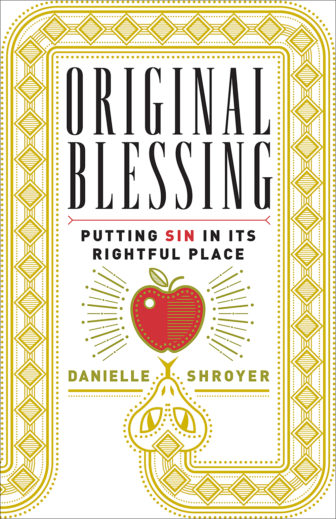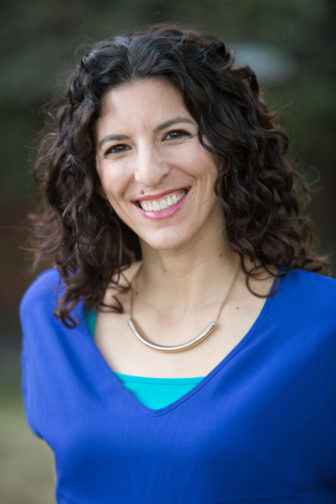Palm Sunday
http://www.seedbed.com/scripture-quotes-poems-palm-sunday/
The Gospel of John notes that Jerusalem welcomed him with palm branches (John 12:13). Palm trees were in abundance in the Mediterranean and were even found on ancient coins. After the Maccabean Revolt (167-160 AD), the Jews rededicated the temple carrying palm branches (1 Macc. 13:51). In Revelation 7:9, people from all nations use palm branches in their worship of Jesus. All four Gospels provide an account of Jesus triumphal entry into Jerusalem:
Many churches initiate the Palm Sunday service with a procession that represents Jesus’ procession into Jerusalem. This practice is attested to as early as in the 4th century in the Pilgrimage of Egeria. "Lift up your heads, O gates! And be lifted up, O ancient doors, that the King of glory may come in." - Psalm 24:7
"Blessed is he who comes in the name of the Lord! We bless you from the house of the Lord. The Lord is God, and he has made his light to shine upon us." - Psalm 118:26-27a
"Rejoice greatly, O daughter of Zion! Shout, daughter of Jerusalem! See, your king comes to you; righteous and having salvation, gentle and riding on a donkey, on a colt, the foal of a donkey." - Zechariah 9:9
Palm Sunday Observances & Poems
Within the very liturgy of Palm Sunday, the tension is evident; traditionally, it is the only day with two Gospel readings—the enervating triumphal entry, and the tragic narrative of crucifixion. Palms turn to passion. It is the way God has designed it, for he did not count equality with God something to be grasped. - Brian Rhea
 O Christ our God
O Christ our GodWhen Thou didst raise Lazarus from the dead before Thy Passion,
Thou didst confirm the resurrection of the universe
Wherefore, we like children,
carry the banner of triumph and victory,
and we cry to Thee, O Conqueror of love,
Hosanna in the highest
Blessed is He that cometh
in the Name of the Lord.
- Toparion of Lazarus Saturday and Palm Sunday
When Christ entered into Jerusalem the people spread garments in the way: when He enters into our hearts, we pull off our own righteousness, and not only lay it under Christ’s feet but even trample upon it ourselves. - Augustus Toplady
No pain, no palm;
no thorns, no throne;
no gall, no glory;
no cross, no crown.
- William Penn
Rest for my soul -- REST! Admidst fears,
Doubts, insecurities -- REST! For my anxious
Heart REST! You made the flower of the field and clothed it --
REST! FOR MY WORK-A-HOLIC
BUSY WAY OF AVOIDING YOU -- rest! FOR TIRED
FEET AND TIRED HANDS.
YOU ARE THE ONE UNRAVELING ME --SLOWING ME
DOWN SO I CAN FEEL AGAIN -- SO I CAN FIND Hope
IN SOMETHING MORE reliable than my own success --
YOU ARE SETTING ME free
Healing my wounds
Purifying my desires
Pushing back the effects of the fall
And you are coming soon
I can feel it every time I see the flowers.
- Samantha Wedelich
 The smell of church reminds me of my childhood
The smell of church reminds me of my childhoodbut over the years, the priest becomes a foolish man.
I've pondered over my faith for so long -
sometimes I reach into my conscious and
pull out steaming fistfuls of pop culture like,
watching Rosemary's Baby on Saturday.
Was God dead in the 50s?
Not nearly as much as he is now.
Today was Palm Sunday, and I felt like a baby,
so naked in the desert sand.
Delicate church, how do you reel me in?
- Kyra Rae
Now to the gate of my Jerusalem,
The seething holy city of my heart,
The saviour comes. But will I welcome him?
Oh crowds of easy feelings make a start;
They raise their hands, get caught up in the singing,
And think the battle won. Too soon they’ll find
The challenge, the reversal he is bringing
Changes their tune. I know what lies behind
The surface flourish that so quickly fades;
Self-interest, and fearful guardedness,
The hardness of the heart, its barricades,
And at the core, the dreadful emptiness
Of a perverted temple. Jesus come
Break my resistance and make me your home.
- from a Christian Lectionary
* * * * * * * *
A Collection of Palm Sunday Observances
http://happyvalentineimages.com/palm-sunday-quotes-poem-for-god-from-bible/
Palm Sunday is also known as a "Movable Feast" as the church celebrates on the Sunday before Easter. It celebrates Jesus' triumphal entry into Jerusalem.
1. "Palm Sunday is like a glimpse of Easter. It’s a little bit joyful after being somber during Lent." - Laura Gale
2. "What should young people do with their lives today? Many things, obviously. But the most daring thing is to create stable communities in which the terrible disease of loneliness can be cured." - Kurt Vonnegut
3. "Palm Sunday tells us that it is the cross [where] is the truer tree of life." - Pope Benedict XVI
4. "Palm Sunday is like a glimpse of Easter. It’s a little bit joyful after being somber during Lent." - Laura Gale
5. "Then I saw heaven opened and a white horse appeared. Its rider is the Faithful and True; he judges and wages just wars." - Revelation 19:11
6. "Rejoice greatly, O daughter of Zion! Shout, daughter of Jerusalem! See, your king comes to you; righteous and having salvation, gentle and riding on a donkey, on a colt, the foal of a donkey." - Zechariah 9:9
7. "It is wiser to build our dependence on God than building it on people because people can choose to leave us at any moment. But only we can choose to leave God because He is ever present and there for those who need and seek Him with a sincere Heart. Happy Palm Sunday!" - Anon
8. "The great gift of Easter is hope – Christian hope which makes us have that confidence in God, in his ultimate triumph, and in his goodness and love, which nothing can shake." - Basil Hume
9. A Palm Sunday’s thought: "Life is full of ups and downs. Glorify God during the ups and fully trust in Him during the downs." - Anon
10. "Anyway - because we are readers, we don’t have to wait for some communications executive to decide what we should think about next - and how we should think about it. We can fill our heads with anything from aardvarks to zucchinis - at any time of night or day." - Kurt Vonnegut
11. "What’s with this final curtain? When God-disturbed churches are packed Palm Sunday, Easter, and Christmas, but not in-between? Will we feel the fateful lightening of his terrible swift sword? Is this Armageddon?" - Buck Malachi
12. "Jesus found a donkey and sat upon it, as Scripture says: Do not fear, city of Zion! See, your king is coming, sitting on the colt of a donkey!" - John 12:14
13. "There would be no Christmas if there was no Easter." - Gordon B. Hinckley
14. "Let every man and woman count himself immortal. Let him catch the revelation of Jesus in his resurrection. Let him say not merely, ‘Christ has risen,’ but ‘I shall rise.’" - Phillips Brooks




















